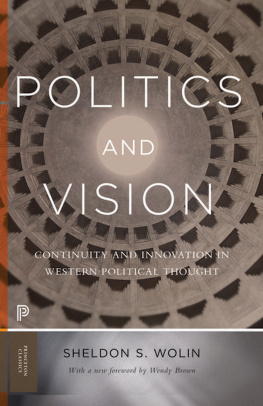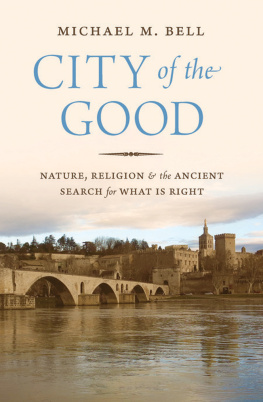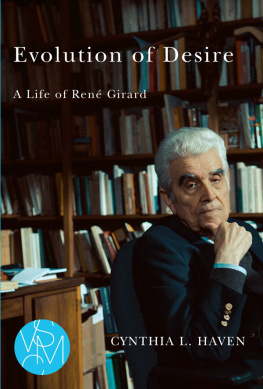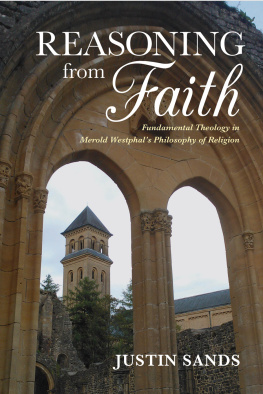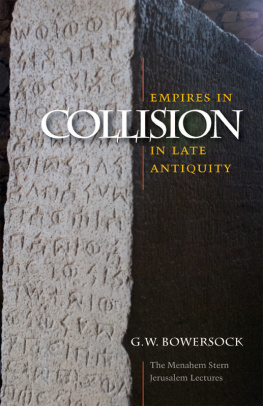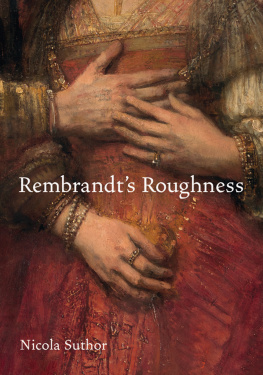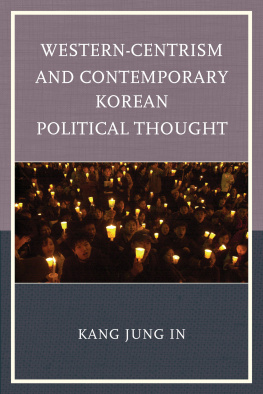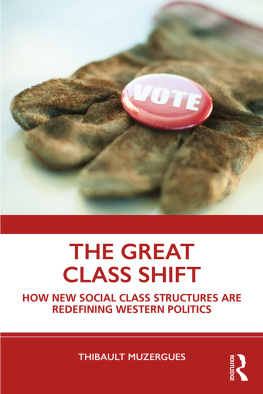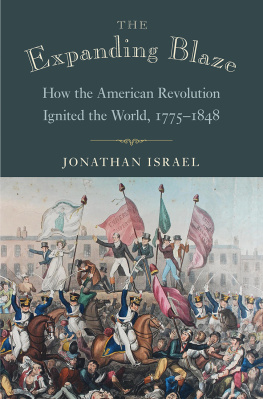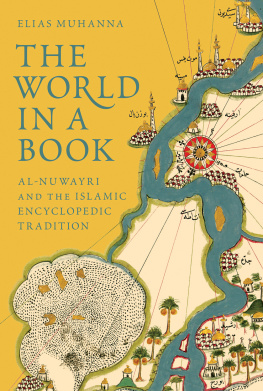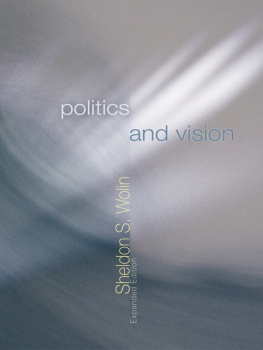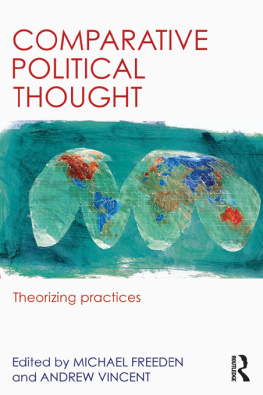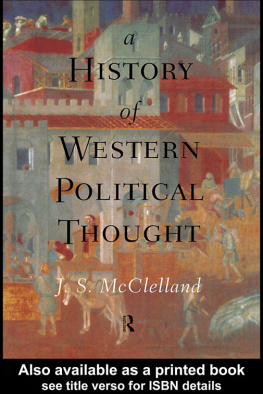Project Muse. - Politics and Vision Continuity and Innovation in Western Political Thought
Here you can read online Project Muse. - Politics and Vision Continuity and Innovation in Western Political Thought full text of the book (entire story) in english for free. Download pdf and epub, get meaning, cover and reviews about this ebook. City: Princeton, year: 2016, publisher: Princeton University Press, genre: Politics. Description of the work, (preface) as well as reviews are available. Best literature library LitArk.com created for fans of good reading and offers a wide selection of genres:
Romance novel
Science fiction
Adventure
Detective
Science
History
Home and family
Prose
Art
Politics
Computer
Non-fiction
Religion
Business
Children
Humor
Choose a favorite category and find really read worthwhile books. Enjoy immersion in the world of imagination, feel the emotions of the characters or learn something new for yourself, make an fascinating discovery.
- Book:Politics and Vision Continuity and Innovation in Western Political Thought
- Author:
- Publisher:Princeton University Press
- Genre:
- Year:2016
- City:Princeton
- Rating:3 / 5
- Favourites:Add to favourites
- Your mark:
- 60
- 1
- 2
- 3
- 4
- 5
Politics and Vision Continuity and Innovation in Western Political Thought: summary, description and annotation
We offer to read an annotation, description, summary or preface (depends on what the author of the book "Politics and Vision Continuity and Innovation in Western Political Thought" wrote himself). If you haven't found the necessary information about the book — write in the comments, we will try to find it.
Politics and Vision Continuity and Innovation in Western Political Thought — read online for free the complete book (whole text) full work
Below is the text of the book, divided by pages. System saving the place of the last page read, allows you to conveniently read the book "Politics and Vision Continuity and Innovation in Western Political Thought" online for free, without having to search again every time where you left off. Put a bookmark, and you can go to the page where you finished reading at any time.
Font size:
Interval:
Bookmark:

POLITICS AND VISION
politics
and vision
Continuity and Innovation in Western Political Thought
Sheldon S. Wolin
PRINCETON UNIVERSITY PRESS
PRINCETON AND OXFORD
Copyright 1960, 2004 Princeton University Press
Foreword to the Princeton Classics Edition 2016
Published by Princeton University Press, 41 William Street,
Princeton, New Jersey 08540
In the United Kingdom: 6 Oxford Street, Woodstock, Oxfordshire OX20 1TR
New Princeton Classics edition, with a new foreword by Wendy Brown, 2016
Paper ISBN: 978-0-691-17405-1
Library of Congress Control Number: 2016945735
British Library Cataloging-in-Publication Data is available
This book has been composed in Adobe Garamond with Helvetica Neue display.
Printed on acid-free paper
Printed in the United States
1 3 5 7 9 10 8 6 4 2
Dedicated to
EMILY PURVIS WOLIN
CONTENTS
CHAPTER ONE |
CHAPTER TWO |
CHAPTER THREE |
CHAPTER FOUR |
CHAPTER FIVE |
CHAPTER SIX |
CHAPTER SEVEN |
CHAPTER EIGHT |
CHAPTER NINE |
CHAPTER TEN |
CHAPTER ELEVEN |
CHAPTER TWELVE |
CHAPTER THIRTEEN |
CHAPTER FOURTEEN |
CHAPTER FIFTEEN |
CHAPTER SIXTEEN |
CHAPTER SEVENTEEN |
FOREWORD TO THE PRINCETON CLASSICS EDITION
Politics and Vision: Continuity and Innovation in Political Thought is both one and two books, written by both one and two political theorists. A changed world and changed thinker divides the 1960 edition from the 2004 expanded edition, the latter now appearing as a Princeton Classic.
First published when Sheldon S. Wolin was a young Berkeley professor, Politics and Vision quickly rose to prominence for its luminous interpretations of canonical theorists and probing reflections on the shifting meaning and status of politics and political theory across Western history. A scholarly work of breathtaking scope composed in accessible literary cadences, it was exemplary of what Wolin would term political theory as a vocation in his 1969 essay by that name.
With its immense erudition and close readings trained on the problematic of the political, Politics and Vision embodied Wolins insistence on political theory as primarily a civic and secondarily an academic activitya critical engagement with collective existence and with the political experiences of power to which it gives rise.
Only against the backdrop of political theorys predicaments in the two eras in which Wolin authored both the original and the expanded edition of Politics and Vision can we fathom the radicalism of this brief for political theory as a shape-shifting activitycritically, actively engaging the historically generated and generative powers of organized collective life. The first edition led political theory back to politics; the second back to critique. Both sought to renew the vitality, complexity, historical illumination, and poetics of political theory for students, teachers, scholars, and educated citizens.
In 1960, political theory as a domain of inquiry and approach to political understanding was a candidate for the dustbin of history. In the social sciences, its bid for knowledge through historical and philosophical reflection was displaced if not disputed by growing positivism, empiricism, and behaviorism in the social sciences. Philosophy was speedily consolidating into its analytic and Continental branches, and the formerwhich governed in the English-speaking worldwithdrew sharply from inquiry that was either historically conscious or concerned with the distinct problematic of political power rather than morality. The quivering remains of a genre of insight fundamentally oriented by canonical political theory could be found only in the cloistered hermeneutics of Leo Strauss and the dry history of ideas of George Sabine.
Onto this parched landscape came Politics and Vision, with its insistence that political theory is not so much interested in political practices, or how they operate, but in their meaning (7), that it posts warnings rather than predictions (14), and that it is at once a theorists interpretation of the world and an imaginative project of seeing beyond facticity in order to build a complex political metaphysic (16). Imagination, Wolin argued, is the theorists means for understanding a world he can never know in an intimate way (19). In addition to challenging the reigning proposition that such a world could be understood through quantitative measurement, Wolin took aim at the fact/norm distinction governing political science: imagination is also the medium for expressing the fundamental values of the theoristthe means by which the political theorist has sought to transcend history (19). Above all, Politics and Vision insisted on political theory as characterized by the perennial yet always historically configured problematics of power, order, authority, political change, conflict, law, and citizenship.
When, forty-five years later, the revised and expanded edition of Politics and Vision appeared, political theory was a robust but almost wholly academic industry.interpreting theorists of the past, and Rawlsian analytics for contemplating (and often muting) the challenges of the present. If Skinner insisted on adducing history to read theory rather than theory to read history, Rawls lifted political philosophy from historical, cultural, and socio-economic context altogether. Combined, the two schools severed the history of political thought from contemporary political theory and established a governing conceit of objectivity for interpreting works of the past (and a tacit bar against using them to illuminate the present) and of rational normativity for political theories of the present (and a tacit elimination of theory as critique). Historicism aimed to cage the political thought of other epochs in their time, and analytic liberal theory was resolutely unhistorical and detached from concerns with power in its pursuit of normative arguments bound to neo-Kantian moral justifications.
Into this scholarly orbit came Wolins expanded Politics and Vision, now supplementing examinations of the ancients, Christians, early moderns, and utilitarians with new chapters on Marx, Nietzsche, Popper, Dewey, Rawls, and theorizations of novel breeds of power that Wolin took to generate the predicaments of the contemporary epoch. The expanded edition, however, offered more than splendid new objects of interpretation by one of the great thinkers of the twentieth century; Wolins own vision had changed, something that was evident in the tone as well as the arguments. If the original volume was meditative, measured, and even melancholy in the warning its final chapters sounded about citizenship and political society disappearing into the age of organization, there was no such diagnostic restraint or mute on his warning bell in the 2004 volume. We are now, he insisted, in the era of Superpower, inverted totalitarianism, democracy destroyed by the corporate state, empire, the dangling citizen, deregulated markets combined with scandalous incarceration rates, a demos massively manipulated and hammered into resignation (578), all sealed with the irony of the ascent of Rawlsian liberal thought just as the political fortunes of liberalism began to wane (538).
Next pageFont size:
Interval:
Bookmark:
Similar books «Politics and Vision Continuity and Innovation in Western Political Thought»
Look at similar books to Politics and Vision Continuity and Innovation in Western Political Thought. We have selected literature similar in name and meaning in the hope of providing readers with more options to find new, interesting, not yet read works.
Discussion, reviews of the book Politics and Vision Continuity and Innovation in Western Political Thought and just readers' own opinions. Leave your comments, write what you think about the work, its meaning or the main characters. Specify what exactly you liked and what you didn't like, and why you think so.

